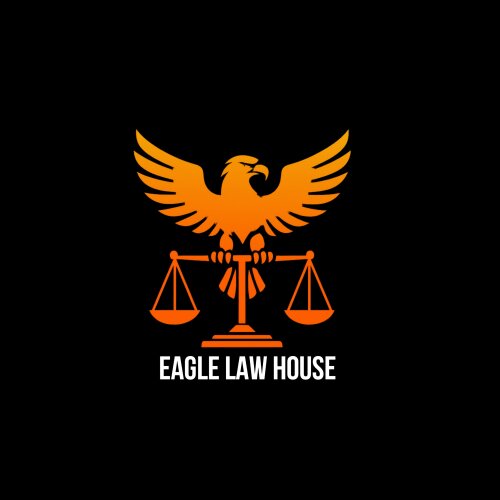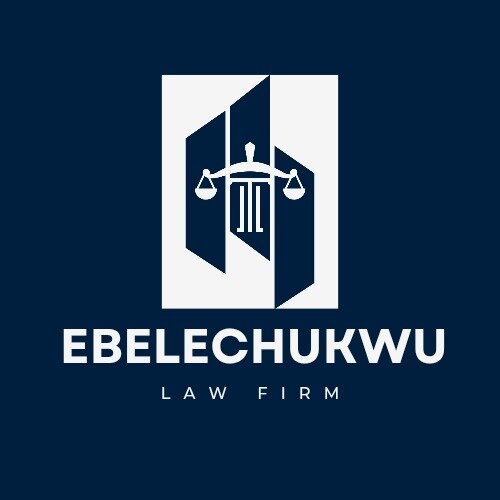Best Family Lawyers in Nigeria
Share your needs with us, get contacted by law firms.
Free. Takes 2 min.
Free Guide to Hiring a Family Lawyer
Or refine your search by selecting a city:
List of the best lawyers in Nigeria
Nigeria Family Legal Questions answered by Lawyers
Browse our 58 legal questions about Family in Nigeria and read the lawyer answers, or ask your own questions for free.
- Divorce or annulment
- Registry in 2024 Living separately waiting for other ceremonies to finalize the marriage Infidelity exposed 2 months after civil, end of relationship after several mediation and health concerns 6 months after civil
-
Lawyer answer by Eagle Law House
The Law recognizes only the marriage conducted at the registry, so you are legally married to your spouse. Infidelity is grave and usually a sufficient ground for divorce.
Read full answer - Divorce and child support
- My (ex) were legally married (registry) on the 19th of March 2011 (Southwest, Ibadan) and then afterwards had our nikkah on the 26th of same month and same year (Zaria, Kaduna). 13 years down the line, he took a second wife on the 22nd of November 2024 (nikkah in Kano)... Read more →
-
Lawyer answer by Eagle Law House
1. Your Marriage Status You were: - Legally married under the Marriage Act (registry marriage) on 19 March 2011 in Ibadan, AND - Subsequently had an Islamic nikah. Under Nigerian law, the statutory (registry) marriage takes priority. What this means:...
Read full answer - What are the process to file for divorce
- What are the process to file for a divorce
-
Lawyer answer by P.O OHIKHENA & Co
In Nigeria, the process for divorce can take a period of 9 months to one year depending on the grounds and if there are children in the marriage. We would need to have a proper discussion so we can determine...
Read full answer
Nigeria Family Legal Articles
Browse our 1 legal article about Family in Nigeria written by expert lawyers.
- How to File for Divorce in Nigeria: Step-by-Step Guide
- Nigeria recognises three main family law systems - statutory (Marriage Act and Matrimonial Causes Act), customary, and Islamic - and the rules that apply to your case depend on how you married and where you live. Statutory (court or church) marriages are generally monogamous and governed by the Matrimonial Causes... Read more →
About Family Law in Nigeria
Family law in Nigeria encompasses a wide range of legal issues that affect individuals and families. It covers marriage, divorce, child custody, adoption, and inheritance, among others. The system is influenced by statutory law, customary law, and religious law - specifically Islamic and Christian doctrines - depending on the region and community involved. Each state's laws might have nuances, but federal laws set the ground for fundamental legal principles.
Why You May Need a Lawyer
There are numerous scenarios in family life where one might need legal assistance:
- Marriage and Prenuptial Agreements: Legal counsel can help draft agreements and ensure compliance with statutory regulations.
- Divorce and Separation: A lawyer can navigate the complexities of divorce proceedings and facilitate negotiations between parties.
- Child Custody and Support: Legal guidance is vital in determining parental rights and responsibilities.
- Adoption: Lawyers ensure that all statutory requirements are met and proceedings are legally binding.
- Inheritance and Estate Planning: Legal expertise is essential to ensure compliance with inheritance laws and to resolve any disputes.
- Domestic Violence: A lawyer can provide protection through restraining orders and legal representation.
Local Laws Overview
Nigerian family law features several critical legal aspects that must be understood:
- Marriage Act: Governs statutory marriages with requirements such as age consent and registration.
- Customary Law: Applies to customary marriages and family practices, varying widely between different ethnic groups.
- Matrimonial Causes Act: Regulates divorce and separation, offering grounds for divorce such as adultery or desertion.
- Child Rights Act: Offers protection and sets the framework for child custody and welfare decisions.
- Legitimacy Law: Covers issues related to the legitimacy of children and inheritance rights.
Frequently Asked Questions
What is the legal age for marriage in Nigeria?
The legal age for statutory marriage in Nigeria is 18 years, but customary and Islamic laws might have different age requirements which vary between cultures.
How can I register a customary marriage?
Customary marriages can be validated by obtaining a marriage certificate from a customary court or a local authority that recognizes the marriage customs of the particular ethnic group.
Can women initiate divorce proceedings?
Yes, both men and women can initiate divorce proceedings under statutory law but the process may differ under customary and religious practices.
What are the grounds for divorce in Nigeria?
Statutorily, grounds include adultery, unreasonable behavior, desertion, living apart for a specified period, among others.
How is child custody determined?
The court decides based on the best interests of the child, considering factors such as age, welfare, and each parent's capacity to care for the child.
What is the adoption procedure in Nigeria?
Adoption requires going through the Ministry of Youth and Social Development and obtaining a court order after fulfilling specified criteria.
Is polygamy legal in Nigeria?
Polygamy is legal under customary and Islamic laws but is not recognized under statutory law, which permits only monogamous marriages.
How can I prevent domestic violence legally?
Affected individuals can obtain protection orders and also seek recourse through the legal system, supported by acts such as the Violence Against Persons Prohibition Act.
Are there special considerations for international marriages?
International marriages often require compliance with both Nigerian and foreign laws, particularly regarding recognition and validation.
How are inheritance and estate issues settled?
Inheritance laws in Nigeria include customary practices, Sharia law, and statutory provisions which can vary widely, so legal advice is crucial to navigate them.
Additional Resources
For further assistance, consider reaching out to:
- National Human Rights Commission
- Federal Ministry of Women Affairs and Social Development
- Legal Aid Council of Nigeria
- Nigerian Bar Association
- Women’s Rights Advancement and Protection Alternative (WRAPA)
Next Steps
If you need legal assistance in family matters, here are the steps you should consider taking:
- Consult a Lawyer: Seek out a legal practitioner specializing in family law to provide guidance tailored to your specific circumstances.
- Gather Your Documents: Collect any relevant legal documents, certificates, or evidence related to your case.
- Understand Your Rights: Educate yourself on your legal rights and responsibilities under Nigerian law.
- Reach Out to Support Organizations: Engage with government or non-governmental organizations dedicated to family law issues for additional assistance and support.
Lawzana helps you find the best lawyers and law firms in Nigeria through a curated and pre-screened list of qualified legal professionals. Our platform offers rankings and detailed profiles of attorneys and law firms, allowing you to compare based on practice areas, including Family, experience, and client feedback.
Each profile includes a description of the firm's areas of practice, client reviews, team members and partners, year of establishment, spoken languages, office locations, contact information, social media presence, and any published articles or resources. Most firms on our platform speak English and are experienced in both local and international legal matters.
Get a quote from top-rated law firms in Nigeria — quickly, securely, and without unnecessary hassle.
Disclaimer:
The information provided on this page is for general informational purposes only and does not constitute legal advice. While we strive to ensure the accuracy and relevance of the content, legal information may change over time, and interpretations of the law can vary. You should always consult with a qualified legal professional for advice specific to your situation.
We disclaim all liability for actions taken or not taken based on the content of this page. If you believe any information is incorrect or outdated, please contact us, and we will review and update it where appropriate.
Browse family law firms by service in Nigeria
Nigeria Attorneys in related practice areas.
Browse family law firms by city in Nigeria
Refine your search by selecting a city.

















